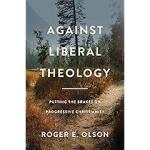Born in 1685, the same year as Johann Sebastian Bach (though the two never met), George Frideric Handel was already substituting for his organ teacher and writing his first composition by the time he was a teenager. Although his father wanted him to become a lawyer, Handel couldn't "handel" being away from music, so he enrolled to study in Germany and Italy, before moving to England where he lived the rest of his life. His passion was the opera—which was unfortunate, since opera was on the wane in England. His friends worried when the concert halls were mostly empty for Handel's performances, but Handel optimistically replied "no problem" since an empty hall meant better acoustics.
But since an empty hall also meant no profit, it wasn't long before his opera company went bankrupt and Handel suffered what seems to have been a mild stroke. Making matters worse, his latest musical fascination, the oratorio (a composition for orchestra and voices telling a sacred story without costumes, scenery, or dramatic action), turned out to be extremely controversial, particularly in church circles. His first oratorio, actually the first of its kind in English, was based on the Old Testament story of Esther, and the puritanical church of that period went ballistic. How dare the words of God be put to modern music and sung in a concert hall! One clergyman roared, "What are we coming to when the will of Satan is imposed upon us in this fashion?"
Handel got pretty irritated by all of this. Rumor has it he could swear up a storm in five languages. "I have read my Bible quite well," he said, "and I will do as I fluchbrunnen please." This didn't go so well. By 1741 he was tapped out, sick, and ready to hang it up. He'd scheduled what he called his "farewell" concert when a friend knocked on his door having written this majestic libretto about the life and redeeming work of Christ. Would Handel compose the music? About that same time, a group of Dublin charities were interested in putting together something for a benefit performance to aid, coincidentally, men locked up in debtors' prison. With now a text and a commission, Handel set to composing Messiah. He finished part 1 in six days, part 2 in nine, and part 3 in six more days. Two more and he was done with the orchestration. He worked like a man obsessed—or, better yet, inspired. He remarked upon completing the Hallelujah Chorus, "I think I did see all heaven open before me, and the great God himself."
Growing up in a small North Carolina church, I vividly remember having a new choir director come on board who decided that our diminutive off-key choir should tackle Messiah one Christmas. We were convinced someone had spiked her eggnog. But she persisted and after about a year of rehearsal, and the recruitment of a couple of ringers who were actually able to read music, we pulled it off. I had one of the solos, as did my mom and my dad. As bad as we were most Sunday mornings, the night we performed Messiah in our little church with our dinky electric church organ, I swear it did seem as if heaven opened. We were all moved to tears—choir and congregation both. It was so powerful that we never did it again—afraid, perhaps, that God might not show up the next time.
Though Messiah was labeled blasphemous by bishops in London and Ireland, its premiere in Dublin in 1742 was a sensation. An over-capacity crowd of 700 attended, the demand for tickets being so great that men were asked not to wear their swords or women their hoop skirts in order to allow for one hundred more tickets to be sold. Reportedly, hoop skirts immediately fell out of fashion for concerts afterward. When the oratorio finally made it to London a year later, the slightly deaf king attended and stood at the start of the Hallelujah Chorus, reportedly mistaking it for the national anthem and starting a centuries long tradition.
Messiah didn't do so well in London, and before long, Handel was again playing to empty halls. He did rebound, however, with other works, and personally conducted Messiah thirty times during his life, though never at Christmastime because he considered it a Lent and Easter piece. Only one of the performances was in a church where John Wesley happened to be in attendance. Wesley remarked, "I doubt if that congregation was ever so serious at a sermon as they were during this performance."
These two numbers that open Messiah come from Isaiah 40. King Hezekiah of Judah chafes under Assyrian occupation. Assyria's rival, and Israel's nemesis, Babylonia, sends envoys to Hezekiah inquiring about a possible alliance. Isaiah had warned Hezekiah about cozying up to Babylon, insisting that Hezekiah wait on the Lord for his deliverance. But Hezekiah opened up his palace anyway, unveiling for the Babylonian envoys all his state secrets, including the treasury and the armory. Isaiah is outraged—as is God. He pronounces doom on account of Hezekiah's duplicity, indeed due to all of Israel's treachery. The chosen nation would suffer defeat at the hands of the Babylonians and be forced into exile.





